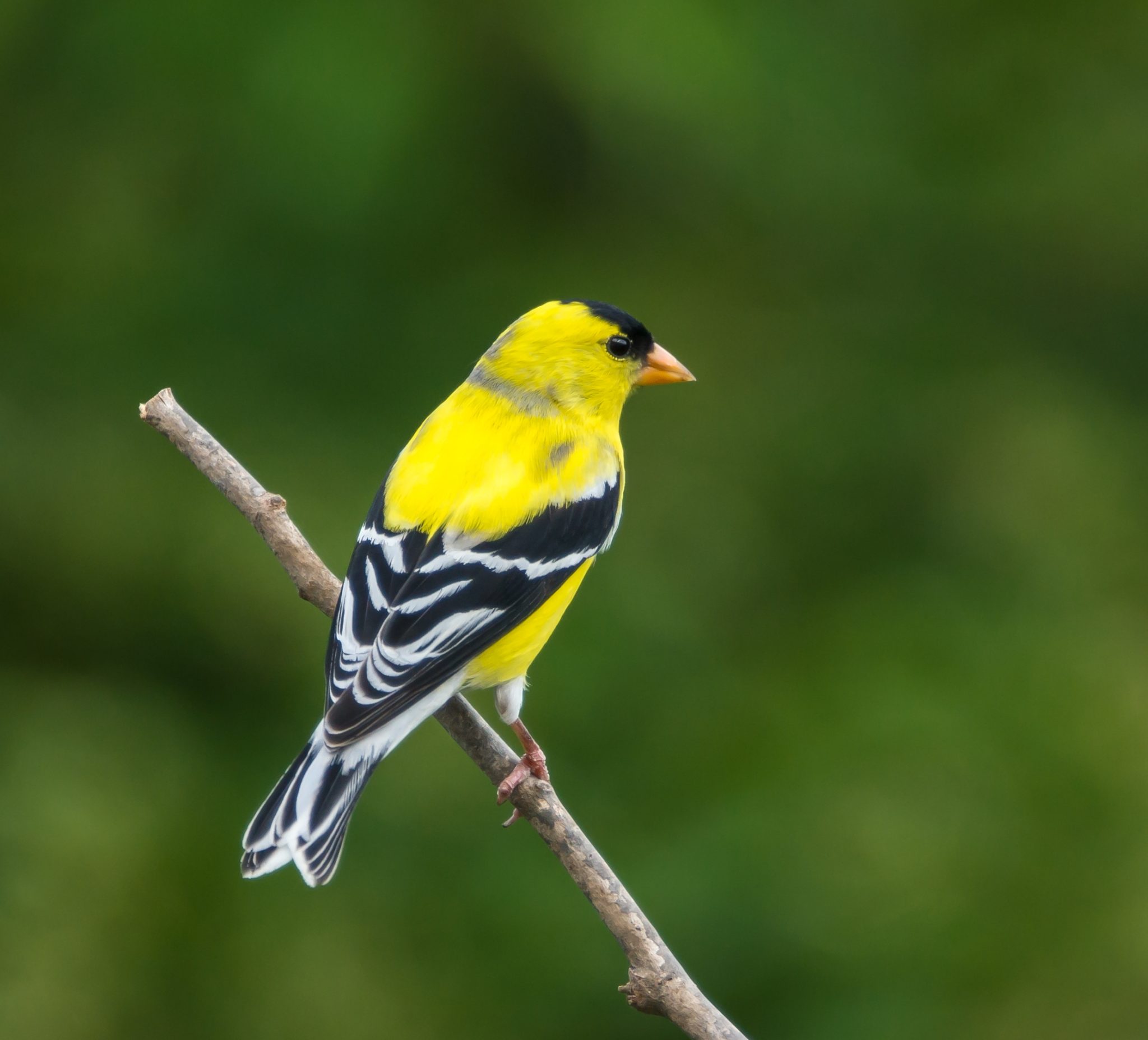The crabapple tree in my backyard looks different lately. The spring buds froze after a period of unusual warmth and then the temperature plummeted and iced the tree in a frosty encasement. The usual spring bouquet of white blossoms that flower the tree like confetti was sparse at best. Now in summer, only a handful of green leaves emerge from the branches.

I picked up the newspaper and pondered the latest events in the news nationally and worldwide, and the personal losses felt by people I know and don’t know. I thought about those tragedies that linger heavy in our hearts. We grieve individually and as a people and wonder why the suffering is a component of living. I looked to my barren crabapple tree, the stick-branched skeleton naked before me and thought about the transformative power of hope.
Because in the nothingness of leafless branches, my tree became populated with a flock of yellow birds. Goldfinches, their vivid yellow breasts reflecting the light like heart-pulsing beacons, literally filled the branches in a plethora of birdsong. Yellow flecks everywhere. Whistles, chirps, squeaks, and twittering filled the airwaves in songfest. Nature had transformed the tree into a visual bouquet of yellow feathers. And the tree was singing!

Russian author, Leo Tolstoy, was emotionally and spiritually stirred by music. He especially loved Chopin, Mozart, Hayden, Bach, and Schubert. That his daughter, Alexandra Tolstoy, chose to share the musical passion her father felt gives added dimension to this great author.
Music penetrated the deepest recesses of his soul, it stirred his whole being, it released in him embryonic thoughts and emotions which he himself was not cognizant. Waves of delight, joy, fear of losing these seconds of almost divine uplift, flooded him, suffocated him. He felt like crying and laughing at once and was filled with the strongest urge to create. (Alexandra Tolstoy, Tolstoy and Music, [New York: Published by Wiley on behalf of The Editors and Board of Trustees of the Russian Review,1958] v.17,4).
In our deepest sorrows and in the longing to make sense of the tragedies humanity knows so well, I believe nature restores us and music lifts our souls. Be it birdsong or flute, of the natural world or of human composition, nature and music evoke emotion. In reflecting about my frozen crabapple tree and the bright melodic goldfinches perched in its branches, it speaks to me of hope. And hope is a beautiful thing.

Former U.S. Poet Laureate and two-time recipient of the Pulitzer Prize for Poetry, Richard Wilbur, expresses a fervent resolve about hope in his poem titled, “Ecclesiastes 11:1.”
Therefore I shall throw
Broken bread, this sullen day,
Out across the snow.
Betting crust and crumb
That birds will gather, and that
One more spring will come.
(Richard Wilbur, “Ecclesiastes 11:1”)
Sending hope for the day! Thanks for stopping by. ♥

